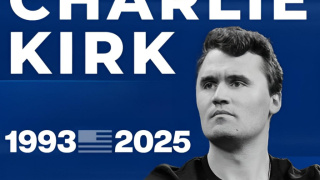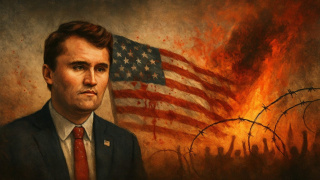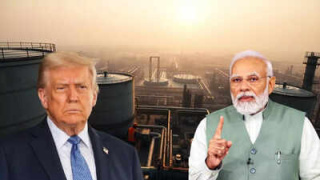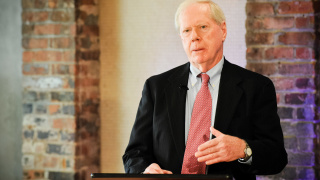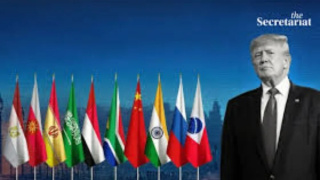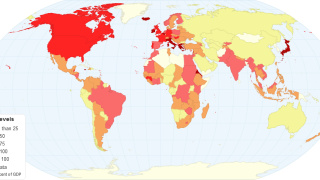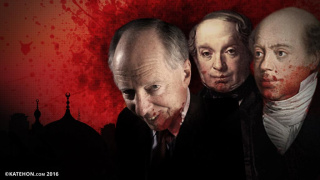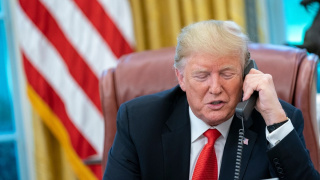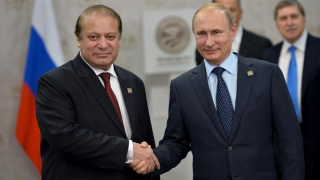Iranian deal: One year of frustration
This year was a very frustrating experience for the Iranians who had approached the nuclear negotiations with good will. The negotiations were a very lengthy and controversial process complicated by the fact that there are forces within Iran who were extremely against the negotiations. However, the negotiation team had the full support of the supreme leader and the Supreme National Security Council.
We haven’t really seen any injections of capital into Iran in the past few years. The economy was very damaged especially with the low prices of petroleum. People couldn’t have access neither to medicine or other basic needs, nor simple banking transactions could be made in global trade. So the past one year was very frustrating for president Rouhani’s administration and his ministers. They didn’t really obtained their hopes of capitalization inflow to boost the economy. So now they are trying to ensure the Iranian public that this process takes time, and that Iranians should be patient.
There are people in Washington who prevent things from going through, even if it breaks International Law. Who will become then next president in America? Hillary Clinton is going to be as continental a president as Obama. And Donald Trump has said that our nuclear agreement with Iran was the worst deals ever. There are already some threats of violating International Law over JCPOA (Joint Comprehensive Plan Of Action).
Many people say that this is not going to happen, but we have seen Washington’s behavior in the past fifteen years. All sorts of International Laws and obligations have been violated. So, anything is possible. And it’s not just certain lobbyists in Washington, but also other countries that are very needlessly and politically destructive, making sure Iran and would never get close. I’m talking about Qatar, Kuwait, Saudi Arabia, Bahrain, and Dubai. European countries also are unwilling to deal with Iran, thus foreign investment is slow.
This is intentional and very complicated. The JCPOA was comprised of the five permanent members of the United Nations Security Council - China, France, Russia, United Kingdom, United States - plus Germany. The United States was one out of these six superpowers, but they are trying to avoid their internationally agreed obligations. All these six superpowers are legally obliged to follow International Law, as JCPOA now is.
Another complicated question is the upcoming presidential elections in the United States and in Iran. Will president Rouhani’s administration continue their momentum, or are we going to see conservatives taking power? There are some talks that even Quds Force commander General Qassem Soleimani may enter the campaign. That’s just in Iran. Also we have these two candidates in the US. I don’t believe we Americans have elections, we have selections. American people are left with only two candidates.
There are many other parties that are not allowed to participate. It’s always Democrats and Republicans. Today we had this horrible event in France. If we had something like this in the US, it could pretty much guarantee Trump’s victory. These are very turbulent and unpredictable times. Nobody is foolish enough to predict who is going to be the next president. I don’t want to speculate.
Back to our economic discussion, Iran made a very lucrative deal with Airbus not too long ago.
But 15% of very sensitive parts for these European Airbus planes are manufactured by the American Boeing. And Boeing under Washington’s direction has blocked to sell these parts to Iran. I know many executives and businesses that are very fed up with this Washington policy. These are influential business power players who are completely fed up with Washington putting American businesses at a disadvantage.
Nobody in Iran has gained any advantage from this deal except to possibly pave the path for a less bleak future. I think the enemies of Iran in the region, like Saudi Arabia, are very unsatisfied with the growing constructive Iranian influence and power. The Iranian attaché military advisors in Syria and Iraq have been instrumental in defeating the jihadi ISIS savages. Saudi Arabia is covertly supporting these savages and are against any reconciliations between Iran and the West.
They are petrified that US could cooperate with Iran in defeating these ISIS savages. The other thing is that $150 billion of Iranian assets are still frozen by the US. The politicians state that this is their money. This is a complete falsification and is used for purposes of psychological warfare and distortion to divert the public opinion. Iranian assets confiscated by the US federal government have to be returned according to the JCPOA. Washington is pretty desperate right now.
Nevertheless, there are constructive elements within the Washington political and military power structure that are pro-reconciliation and pro-peace. But their voices are being drowned out by these hawks and the Neo-con/ Neo-lib warmongers.
People haven’t learnt a thing from all these Washington-fuelled Middle Eastern conflicts since 2001. These are the last gasps of a dying, desperate Empire. The people who are running Washington do not represent the country, they represent global banking interests. But the American people are becoming very awakened and alert. We also don’t have a precedent when six superpowers signed an international treaty (JCPOA) and only one of them implies deviating from its promises and obligations.
Usually the Europeans and the US ships sail in the same direction figuratively speaking; maybe not China and Russia as new alliances are being formed to confront NATO. But now we have a situation where a Republican candidate is openly challenging that international treaty.

